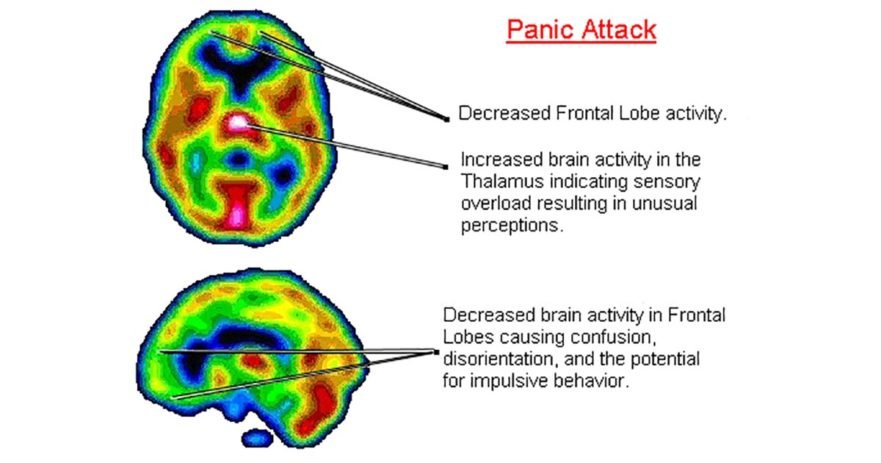3 Science Backed Vitamins For Anxiety And Panic Attacks

In the fast-paced modern world, anxiety and panic attacks have become increasingly prevalent, affecting individuals of all ages. While there are various treatment options available, incorporating science-backed vitamins into one’s daily routine may offer a natural solution to alleviate symptoms.
This article explores three key vitamins for anxiety and panic attacks – tryptophan, vitamin B6, and iron – that have been scientifically proven to help manage anxiety and panic attacks.
By understanding the research behind these vitamins and incorporating them into a well-balanced diet, individuals can potentially find relief from these debilitating conditions.
Vitamins For Anxiety And Panic Attacks
Various vitamins, including vitamin B6, iron, and tryptophan, have been scientifically studied for their potential efficacy in reducing symptoms of anxiety and panic attacks.
Vitamin B6, also known as pyridoxine, plays a crucial role in the synthesis of neurotransmitters such as serotonin and gamma-aminobutyric acid (GABA), which are involved in mood regulation.
Iron is essential for the production of hemoglobin, which carries oxygen to the brain. Low iron levels have been associated with increased anxiety symptoms.
Tryptophan is an amino acid that serves as a precursor to serotonin production. Serotonin is a neurotransmitter that regulates emotions and can influence anxiety levels.

What the science says
In regards to the science behind vitamins for anxiety and panic attacks, three key points worth discussing are:
- Vitamin B6: This vitamin has been studied for its potential role in reducing symptoms of anxiety. It is believed to support neurotransmitter production, which can help regulate mood and alleviate anxiety symptoms.
- Iron: Iron deficiency has been linked to an increased risk of developing anxiety disorders. This highlights the importance of maintaining adequate iron levels in managing anxiety symptoms. Ensuring sufficient iron intake through diet or supplementation may help reduce anxiety symptoms.
- Tryptophan: Tryptophan is an essential amino acid that plays a crucial role in the synthesis of serotonin, a neurotransmitter associated with mood regulation. Increasing tryptophan intake may help boost serotonin levels, making it a potential target for alleviating anxiety and panic attacks.
These three points provide insight into the potential benefits of certain vitamins and nutrients in managing anxiety and panic attacks. By addressing neurotransmitter production, iron levels, and serotonin synthesis, individuals may be able to find relief from their symptoms.
Vitamin B6
Vitamin B6 supplementation has been shown to reduce self-reported anxiety and induce a trend towards reduced depression in individuals with panic attacks and hyperventilation attacks. [1]
This is supported by a randomized control study that was publish in the journal of Human Psychopharmacology – which investigated the effects of high-dose B6 supplementation compared to placebo.
The study involved 478 young adults and assessed various behavioral outcome measures related to neural inhibition and excitation.
Results showed that vitamin B6 supplementation led to a decrease in self-reported anxiety and potentially decreased depression symptoms.
Iron
Iron deficiency has been linked to an increased risk of psychiatric disorders, including anxiety and depression. Studies have shown that patients with panic attacks (PA) and hyperventilation attacks (HVA) have significantly lower levels of iron compared to healthy individuals. [2]
Iron is an important cofactor for the synthesis of serotonin, a neurotransmitter involved in mood regulation. [3]
Reduced serotonin levels are known to be associated with psychiatric disorders such as anxiety and depression. [4]
In addition, research has found that iron deficiency anemia (IDA) is also associated with psychosocial consequences and psychiatric morbidity. [5]
Adults with IDA have a higher incidence and risk of anxiety disorders, depression, sleep disorders, and psychotic disorders compared to those without IDA.
The use of iron supplementation in IDA patients has been shown to decrease the risk of developing psychiatric disorders.
Tryptophan
The effects of tryptophan intake on mood have been investigated in several studies, suggesting its potential as a therapeutic approach for improving mental well-being in healthy individuals.
Tryptophan is an essential amino acid and serves as a precursor for serotonin, a neurotransmitter involved in regulating mood. [6]
A systematic review of randomized controlled trials (RCTs) found that tryptophan supplementation had significant effects on negative feelings and happy feelings in healthy individuals compared to control groups. [7]
These findings indicate that tryptophan intake may be effective in reducing anxiety and increasing positive mood. However, the effectiveness of tryptophan for aggressive feelings was not established.
The review suggested an optimal daily intake range of 0.14-3 g of tryptophan to improve mood, but further research is needed to determine more precise dosage recommendations and other factors such as intake period, frequency, and method.
Foods high in tryptophan
Foods rich in tryptophan can potentially help alleviate symptoms of anxiety and panic attacks. Including tryptophan-rich foods in your diet may increase serotonin levels, which can have a positive impact on anxiety and panic disorders.
Here are four foods high in tryptophan:
- Turkey: This popular Thanksgiving centerpiece contains high levels of tryptophan.
- Nuts and seeds: Almonds, pumpkin seeds, sunflower seeds, and sesame seeds are all good sources of tryptophan.
- Legumes: Lentils, chickpeas, and soybeans are excellent plant-based sources of tryptophan.
- Dairy products: Milk, cheese, yogurt, and other dairy products contain significant amounts of this amino acid.
Incorporating these foods into a balanced diet may provide some relief from anxiety symptoms by boosting serotonin production naturally.
Foods high in vitamin B6
Vitamin B6, also known as pyridoxine, is involved in the synthesis of neurotransmitters such as serotonin, dopamine, and gamma-aminobutyric acid (GABA), which are all important for maintaining emotional well-being and reducing anxiety.
Foods rich in vitamin B6 include:
- bananas
- chickpeas
- salmon
- poultry
- sunflower seeds
- spinach.
Including these foods in one’s diet can help ensure an adequate intake of vitamin B6 to support mental health and alleviate symptoms associated with anxiety and panic attacks.
Foods high in iron
Iron is an essential nutrient found in a variety of foods that can contribute to maintaining overall health and well-being. It plays a crucial role in the production of red blood cells, which are responsible for carrying oxygen throughout the body.
Here are four iron-rich foods that can help meet your daily iron requirements:
- Lean meats: Beef, pork, and poultry are excellent sources of heme iron, the type of iron that is more easily absorbed by the body.
- Legumes: Foods like lentils, chickpeas, and beans provide non-heme iron, which is less readily absorbed but can still contribute significantly to iron intake.
- Leafy greens: Vegetables such as spinach, kale, and Swiss chard contain both non-heme iron and vitamin C, which enhances iron absorption.
- Fortified cereals: Many breakfast cereals are fortified with iron to help individuals meet their dietary needs.
Including these foods in your diet can help ensure adequate iron intake and support overall health.
What are the most common Panic Attack Symptoms?
One commonly observed set of symptoms associated with panic attacks includes rapid heartbeat, shortness of breath, and a feeling of impending doom. These physical sensations often occur suddenly and reach their peak within minutes.
Individuals experiencing panic attacks may also exhibit trembling or shaking, sweating, chest pain or discomfort, nausea or abdominal distress, dizziness, and lightheadedness. Additionally, they may feel detached from reality or experience depersonalization and derealization.
People with panic disorder often report fear of losing control or going crazy during these episodes. It is important to note that symptoms can vary among individuals and not every person will experience all the mentioned symptoms during a panic attack.
Frequently Asked Questions
Conclusion
In conclusion, the science suggests that these three vitamins – tryptophan, vitamin B6, and iron – can potentially help with anxiety and panic attacks.
Tryptophan-rich foods like turkey and bananas can contribute to the production of serotonin, a neurotransmitter important for mood regulation. Vitamin B6 is involved in the synthesis of serotonin and other neurotransmitters, while iron plays a role in oxygen transportation throughout the body.
Incorporating these nutrients into one’s diet may offer some benefits in managing symptoms of anxiety and panic attacks.
Read Next





